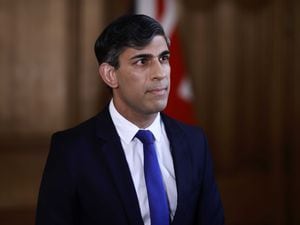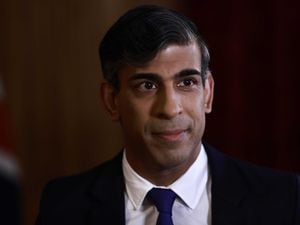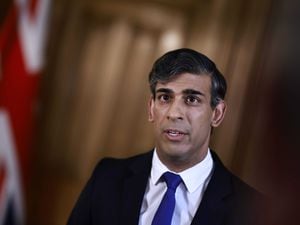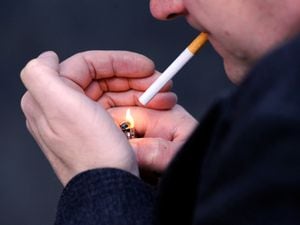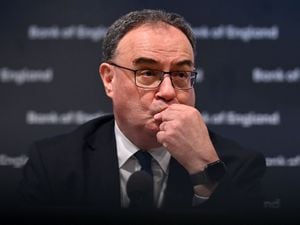Kate praises pupils learning about early years development of children
The Duchess of Cambridge has been speaking out about the importance of the formative years of a child’s development for many years.
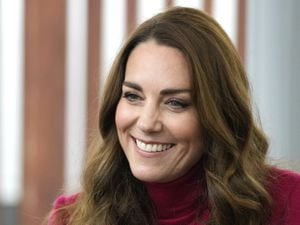
The Duchess of Cambridge has been told children learning through play is like “bodybuilding, but for your brain” as she shared her “passion” for early years development with students.
Kate joined a classroom of pupils at a north-west London comprehensive learning about the subject and encouraged them to explore the topic further, telling them “keep chatting about it with your friends”.
During the past decade, the duchess has worked to highlight the importance of the formative years of a child’s life, and has established her Royal Foundation Centre for Early Childhood.
The new organisation has three key areas of focus – research, developing new solutions with public and private voluntary sectors, and campaigns to raise awareness.
At the end of the session, Kate told the students: “So really well done and I hope you found it interesting. It’s a real passion of mine, leaning about babies’ brains and how our adult brains develop and how our early childhood influences the adult brain.
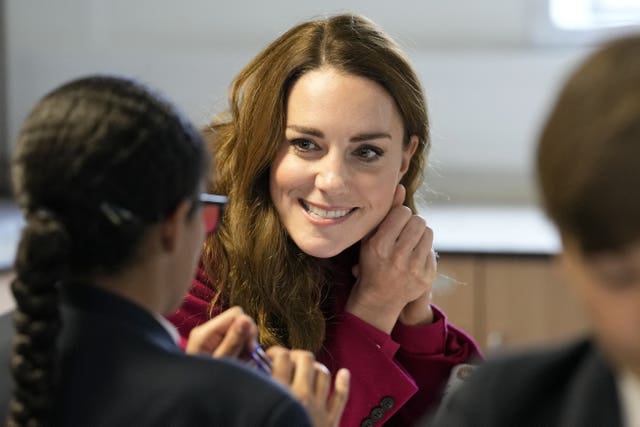
“Keep thinking about it, keep chatting about it with your friends. Well done, super impressed and thank you for having me.”
When the duchess first arrived at Nower Hill High School in Harrow, she took her seat in class W8 – 27 pupils aged around 13 – who were going over topics learnt during the SEEN programme.
Seen – Secondary Education around Early Neurodevelopment – is run by Oxford University and aims to teach the key principles of early childhood development and neuroscience.
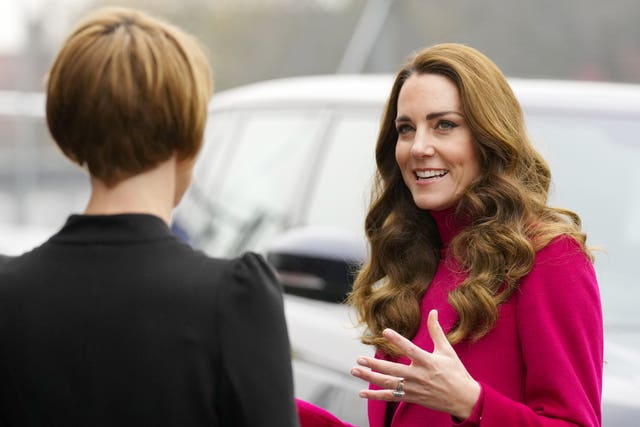
During the lesson, a projector showed photographs demonstrating the neuro development of a young child’s brain.
The class also watched a video of a toddler playing by looking through a magnifying glass, and were tasked with answering a series of questions including: what happens in the brain during the first five years of life and what advice would they give to a new parent?
“Hopefully you can teach me about the things you are learning,” said Kate, referring to the three lessons the children had already been given.
She smiled as one enthusiastic pupil told her that encouraging children to learn through play was like “bodybuilding, but for your brain” and nodded encouragingly as another told her that a child’s brain grows fastest between up to the age of two.
Later during her discussions with the students, Kate said: “You are so right, that play helps babies develop and so does the way we engage with them. This child isn’t just playing on their own. You need to be able to understand a baby’s feelings to help regulate that.
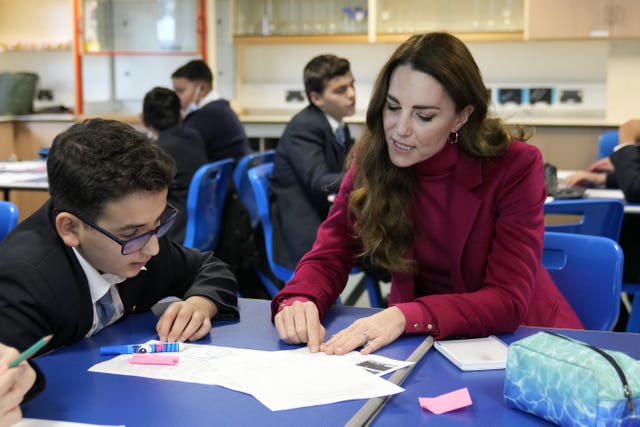
“The one thing you learn is that your babies are watching you all the time, so ideally you are showing the children what to do. They learn from you, good and bad things. So if you show them to eat, say, with a knife and fork, then they will start to pick it up.”
The Seen research project has been commissioned and funded by Kindred2, the early years charitable foundation, and developed by the University of Oxford which tested the new science curriculum with Key Stage 3 pupils.
More than 3,700 11 to 14-year-olds took part in three lessons which covered the neuroscience of how brains are built and how experiences – including the role of caregivers – impact brain development.
Nower Hill headteacher Louise Voden said afterwards the project had a “real resonance” with the children.
She added: “We are so delighted that the duchess chose to come to a large, mixed ability comprehensive in London. We have a wide range of pupils, from those going to Oxford out Cambridge to those have more challenging education needs. But all of them have really benefitted from this experience.”

